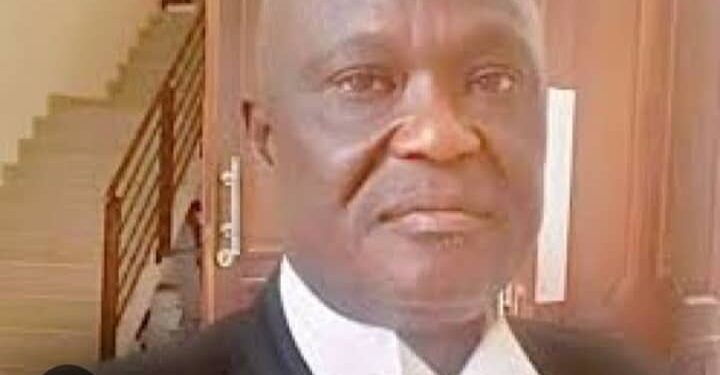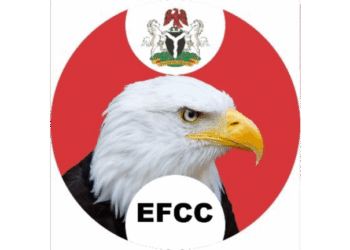By Gloria Mabeiam Ballason Esq
It was only eleven days into the year 2024 when seven senior advocates sued the National Judicial Council, Kogi State Judicial Service Commission, Governor of Kogi State and the Attorney General of the state.
The Suit, FHC/Abj/CS/05/2024, sought a declaration that the choice of Mrs. Amina Bello, the then Governor’s wife, was not based on merit but political and ethnic influence. It therefore sought a mandatory order restraining the appointment of new judicial officers until there was compliance with the laws that mandated merit, competence, sound knowledge of the Law, fairness and equity.
The crusade was led by Yunus Ustaz Usman,
who was called to the Nigerian Bar on 30 July, 1983- a legal career that would see him rise to the pinnacle as Senior Advocate of Nigeria, the fifth person in Northern Nigeria to attain the rank.
Mr. Usman led six other learned silks including Messrs Jibrin Okutepa, Patrick Okolo, Abdullahi Haruna, Reuben Atabo, Shuaibu Aruma and Johnson Usman. It was a departure from commentaries and cries for transparency in the process of appointment of Judges in Nigeria as the top brass lawyers moved talk to walk by inviting the Court to define who to wall in and wall out of the hallowed height of presiding and deciding the affairs and fate of men.
My earliest close interaction with Yunus Ustaz Usman SAN was when Olumuyiwa O. Olowokure Esq, former chairman of the Kaduna Bar, requested that I serve in a Law week committee he was presiding over. O.O. was not the kind of person you turned down. He and the erstwhile Director of Public Prosecutions, Gamaliel Byang Kore Esq, were my first guests on my law radio show and had both graciously accepted to serve on the Medico-Legal Board at House of Justice. Sadly, they both passed away few years apart.
Usman, SAN went over and beyond our committee’s request and solely sponsored the visit to the orphanage and attended the event in person after Jumat prayers. Holding one of the babies, he encouraged the forlorn orphans to keep faith and offered to be their earthly father reminding them that their future was secured as God was already their heavenly father. You know, it is one thing to give gifts but to offer one’s self to bear the weight of strangers, is a higher form of humanity.
Usman SAN, lived in that higher realm with his reputable philanthropy of providing scholarship to indigent students, feeding the hungry, donating to causes and often being a top contributor in cash and knowledge to the Nigerian Bar particularly the Kaduna Branch where he was the Leader.
Speaking of leadership, he moved it from adjective to verb. It was the point of my more personal connect with him:
Sometime in 2018, Professor Ernest Ojukwu, SAN joined the race to lead Africa’s biggest legal bar. It coincided with a time when Nigerians who voted President Muhammadu Buhari had resigned from the initial messianic esteem they held him to. There was hence the need to mitigate the leadership deficit by having a Nigerian Bar that would not only be alive to its core mandate of promoting the rule of law but could save whatever was left of Nigeria’s free fall.
Of the three candidates: Professor Ernest Maduabuchi Ojukwu SAN, Arthur Obi Okafor SAN and Paul Usoro SAN, my choice was the silked professor. He was not only the Deputy Director General of Agbani campus of the Nigerian Law School where he had taught me, but his record with clinical legal education, drive for innovation, aversion for convention and commitment to judicial reforms had sufficiently won me over.
Prof. Ojukwu was also Mr. Usman’s choice but a bloc of the leadership rooted for a different candidate. Although he was the leader of the Kaduna Bar, he was never one to browbeat or overawe lawyers into a decision. He understood agency and respected it.
Usman led Ojukwu’s campaign along with other senior lawyers in Kaduna state like Oladipo Tolani, SAN, Femi Morohundiya (now deceased) and Mark Jacob Nzamah Esq, a former Attorney General of the state. He didn’t stop there; he directed the use of my House of Justice office as the state campaign office and situation room, attended meetings and funded the activities of our candidate’s campaigns – a testament to his humility, ability to be his own man and to disagree without being disagreeable.
During the reign of Nasir Elrufai as ‘Emperor of Kaduna state’, I was perpetually in a legal odyssey advocating and litigating against the myriad abuse of power and violations of rights by the Governor. Usman SAN would often encourage me to keep the fight on with sustained courage and hope. As further support, he went on to submit my curriculum vitae to the Independent National Electoral Commission so I could be included in their legal team and although I was not retained, the magnanimity of this amiable leader tugged at my heartstrings.
Of the kindness I received from him, perhaps none would endure as the gift of his daughter, my gorgeous friend, Nana, whose heart is as generous and kind like her father’s. I hope that along with her big brother, Abdulmutallab and her sister Sadiya all of whom are lawyers, they are able to carry forward the justice ideals their father stood for.
Yunus Ustaz Usman SAN died on 11 September, 2024 – 9 months after the date they filed the case against the politicization of not only his home state’s judiciary but Nigeria’s as a whole. For those who knew him, judicial integrity was often his recurring subject of discourse. He understood that true freedom requires the rule of law and a judicial system in which the rights of some are not secured by the denial of rights to others. In his honour, the Nigerian Bench and Bar must recommit to ensuring justice satisfies the appearance of justice and judicial integrity becomes a state interest of the highest order.
Thank you Yunus Ustaz Usman, SAN for your time, service and leadership. Although the earth is poorer with your passing, history’s vault is richer with your legacy and we shall not forget you.
_*Gloria Mabeiam Ballason Esq is the Principal Partner MIVE LEGALS and the C.E.O. of House of Justice. She may be reached at gloriaballason@houseofjusticeng.com*_











